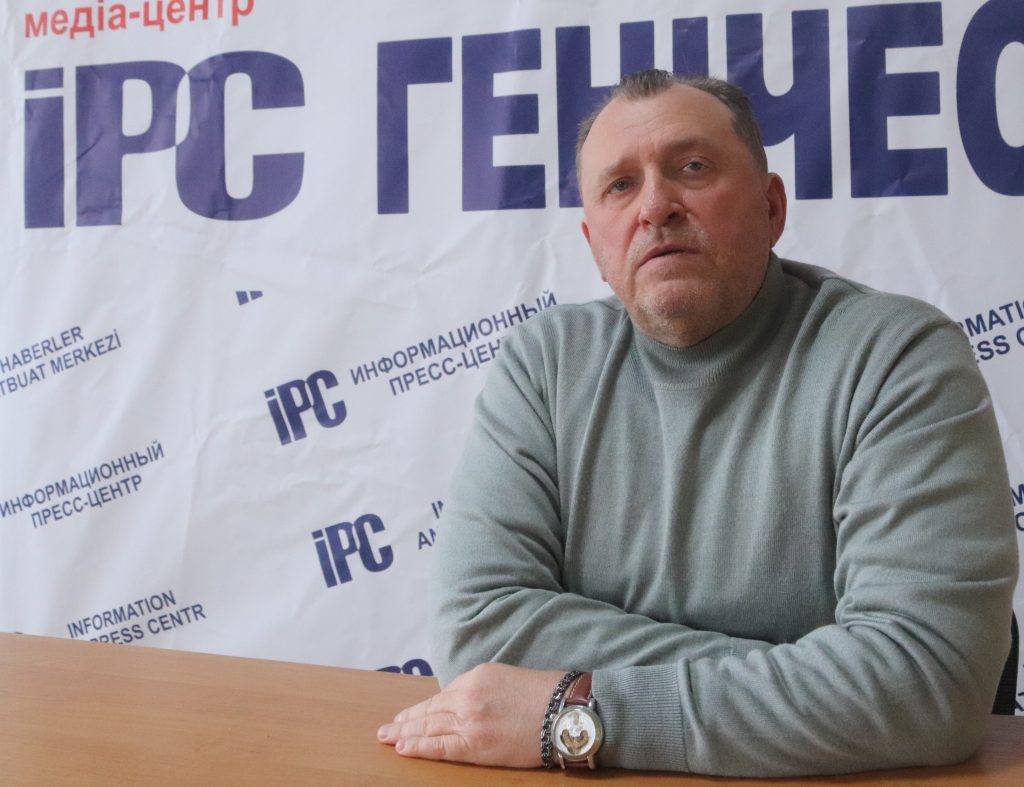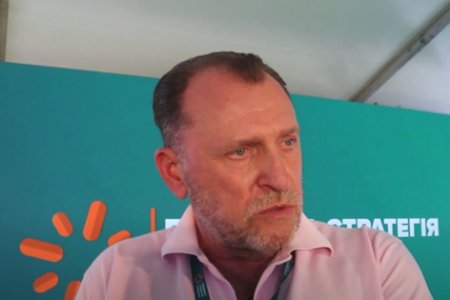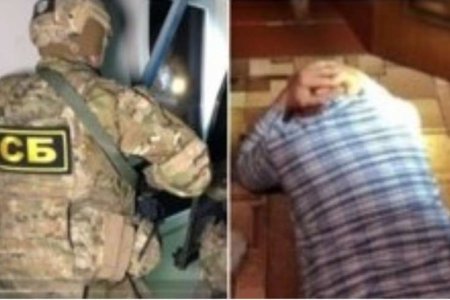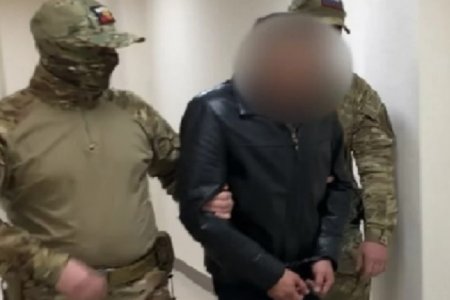
Oleksiy Kiselyov, former commander of the Ukrainian Navy’s Slavutych Command Ship, has gone on hunger strike in the Simferopol SIZO [remand prison] where Russia is illegally holding him prisoner. Kiselyov is facing surreal charges, fabricated after the Russian invaders abducted him from his home in occupied Henichesk (Kherson oblast).
Kiselyov’s lawyer, Alexei Ladin, reported the hunger strike after visiting his client on 31 October. The 58-year-old retired Ukrainian naval captain has been forced to take this step as his captors are refusing to carry out a proper medical examination after the injuries, including broken ribs, which he sustained in the course of five days of savage torture.
Graty has published an account from Oleksiy Kiselyov himself about his abduction and subsequent torture. He explains that he was seized by men in masks outside the Red Cross building in Henichesk in the afternoon of 22 July 2022. They forced him into a minivan without number plates, where they tied his hands and put a bag over his head, and also twisted a joint in his right shoulder. With a gun pointed at his left knee, they asked him questions, such as where the ‘partisan unit’ was located that he purportedly ‘commanded’, where their supposed hiding place of weapons was kept, when members met, etc. They claimed also that he had a nom de guerre, ‘handlers’ within the Ukrainian Armed Forces and SBU [Security Service], etc. In seizing him, they twisted a joint in his right shoulder.
His Russian abductors took Kiselyov to the place where he has been living since Russia’s invasion and annexation forced him to leave Crimea. At one point, they took the bag off his head and took a photo of him which they sent to somebody. Having received confirmation that “it’s him”, they again put the bag over his head and continued driving. At his flat, one of the abductors took the keys out of Kiselyov’s pocket and opened the door. During the search, Kiselyov was held in the kitchen, still with his hands bound and unable to see. He was not presented with any search or arrest warrants. The term ‘search’ can only be used very loosely as his abductors found nothing of interest except his car; money in both Ukrainian hryvnia and US dollars; and deposit and credit cards, all of which they simply stole.
He was then taken to the basement of Henichesk Technical College No. 17 where he was held prisoner until 10 a.m. on 27 July. “All of that time, five days and nights, I was subjected to beatings and the most savage torture with electric currents.” They continued asking about the partisan movement; if he was involved in it; and about a supposed hiding place for weapons. They added two other questions, about alleged involved in the civic blockade of Crimea and about homes being built for members of the Noman Çelebicihan Battalion , and for displaced people in general.
At 10 a.m. on 27 July, he was taken by car to occupied Crimea where, in the FSB building in Simferopol the torture continued. Now, however, they demanded only one thing, that he ‘confess’ to taking part in the blockade of Crimea and being a member of the Noman Çelebicihan Battalion. Despite its name and Russia’s claims, this was an unarmed civic organization which was legal and functioned in mainland Ukraine.
Kiselyov stresses that, neither in Henichesk, nor in Crimea, did he sign or provide any of the demanded ‘confessions’. He is, he adds, in need of medical care since he has broken ribs, twisted joints in his arms and legs, and a broken tooth. All efforts to get even an examination have been ignored, and there has been no investigation into his complaint regarding the torture.
It was only on 29 July, a full week after his abduction, that ‘investigator’ Sergei Bushuyev applied to the Russian-controlled ‘Kievsky district court’ in Simferopol for Kiselyov to be remanded in custody for two months, with this duly rubberstamped by ‘judge’ Valentina Kamyanina. He has been imprisoned ever since and is facing a long sentence despite this being for peaceful civic activism.
It seems clear that the Russians viewed the retired Ukrainian naval captain and Slavutych commander as a ‘trophy’ and were intent on fabricating serious charges against him. When attempts to torture out a ‘confession’ that he commanded a partisan unit failed, they turned to the grotesque charge of involvement in the Noman Çelebicihan Battalion [the Battalion]. As mentioned, this is an entirely legal formation which is not engaged in fighting. Russia is using the surreal charge of “taking part in the activities of an unlawful armed formation acting on the territory of a foreign country for purposes which are against the interests of the Russian Federation”, under Article 208 § 2 of Russia’s criminal code.
The Battalion was founded by Crimean Tatar activist and businessman Lenur Islyamov on 1 January 2016, with the first members people who had taken part in the essentially peaceful civic blockade of occupied Crimea from 20 September 2015. The blockade began with human rights demands, including the release of all political prisoners and reinstatement of the other human rights that Russia had been systematically crushing since its invasion and annexation of Crimea. Although the ultimate aim of all participants in the blockade and in the Battalion was undoubtedly an end to Russia’s illegal occupation of Crimea, their actions, unlike Russia’s, were peaceful. Russia reacted with hysteria at the time and repression later, since the blockade highlighted the degree to which Crimea is organically dependent upon mainland Ukraine.
If there were ‘only’ six men sentenced to long terms of imprisonment for legal activities in mainland Ukraine, that figure rose steeply after Russia’s full-scale invasion and annexation of Crimea. At least ten other Ukrainians, most of them Crimean Tatars, have been abducted since the invasion and charged with involvement in the battalion.
On 1 June this year, the Russian Supreme Court labelled the already non-existent Battalion a ‘terrorist organization’. On 21 July, Russia’s FSB [security service] added the Battalion to its notorious list of so-called ‘terrorist and extremist organizations.’ These moves were almost certainly aimed at justifying Russia’s abductions of people living in Kherson oblast and show trials in occupied Crimea. They are particularly dangerous as they enable the FSB to generate multiple prosecutions without any evidence of an actual crime. Nor is any real proof of involvement in the Battalion required as the FSB uses anonymous ‘witnesses’ whose supposed testimony cannot be verified. It is, unfortunately, likely that the fictitious ‘terrorist’ nature of a defunct organization will soon lead to a sharp increase in the sentences passed. At present, the sentences vary in length but are roughly the same as when Russia first began fabricating such cases in 2018.
Russia’s FSB claim that Kiselyov joined the Noman Çelebicihan Battalion in May 2016. He is alleged to have provided other members of the Battalion with food items and supposedly prepared them for a sea blockade of Crimea, by teaching them to steer boats. In the attempt to fabricate a show trial of the ex-Slavutych Commander, the FSB are claiming that the boats that he was supposedly teaching people to steer were supposed to place cables along the Crimean coast and “thus block the movement of ships”.
After his enforced move to Henichesk, in Kherson oblast, Kiselyov co-founded the civic organization ‘Pereselenets SOS’, which upheld the rights of internally displaced people forced to leave occupied Crimea and Donbas. He was at the administrative border between mainland Ukraine and Crimea in 2015 as head of the above NGO, not as a member of the Battalion which was also present. Kiselyov knows Lenur Islyamov, but maintained no relations with him. Islyamov in his turn has confirmed that Kiselyov had no relation to the Battalion.
Kiselyov denies the charges. Unfortunately, neither the lack of any proof, not based on the supposed ‘testimony’ of secret witnesses, nor the absurdity of the impugned ‘crimes’, are likely to make any difference. This is a political ‘trial’ heard before a Russian-controlled ‘court’ with Kiselyov facing a potential sentence of 15 years. He is 58 now, and has chronic illnesses, meaning that this would be an effective death sentence.



